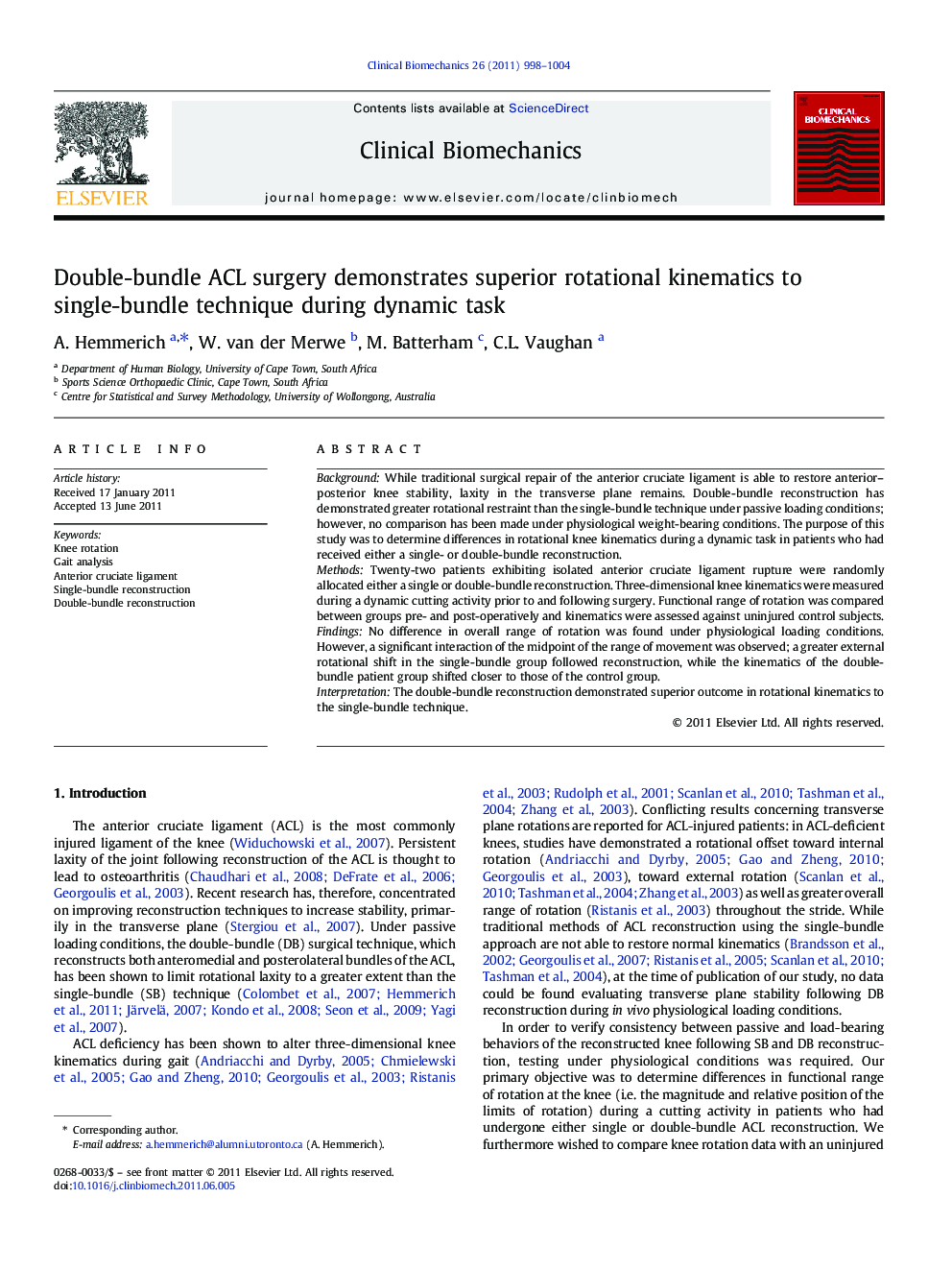| کد مقاله | کد نشریه | سال انتشار | مقاله انگلیسی | نسخه تمام متن |
|---|---|---|---|---|
| 4050535 | 1264938 | 2011 | 7 صفحه PDF | دانلود رایگان |

BackgroundWhile traditional surgical repair of the anterior cruciate ligament is able to restore anterior–posterior knee stability, laxity in the transverse plane remains. Double-bundle reconstruction has demonstrated greater rotational restraint than the single-bundle technique under passive loading conditions; however, no comparison has been made under physiological weight-bearing conditions. The purpose of this study was to determine differences in rotational knee kinematics during a dynamic task in patients who had received either a single- or double-bundle reconstruction.MethodsTwenty-two patients exhibiting isolated anterior cruciate ligament rupture were randomly allocated either a single or double-bundle reconstruction. Three-dimensional knee kinematics were measured during a dynamic cutting activity prior to and following surgery. Functional range of rotation was compared between groups pre- and post-operatively and kinematics were assessed against uninjured control subjects.FindingsNo difference in overall range of rotation was found under physiological loading conditions. However, a significant interaction of the midpoint of the range of movement was observed; a greater external rotational shift in the single-bundle group followed reconstruction, while the kinematics of the double-bundle patient group shifted closer to those of the control group.InterpretationThe double-bundle reconstruction demonstrated superior outcome in rotational kinematics to the single-bundle technique.
Journal: Clinical Biomechanics - Volume 26, Issue 10, December 2011, Pages 998–1004